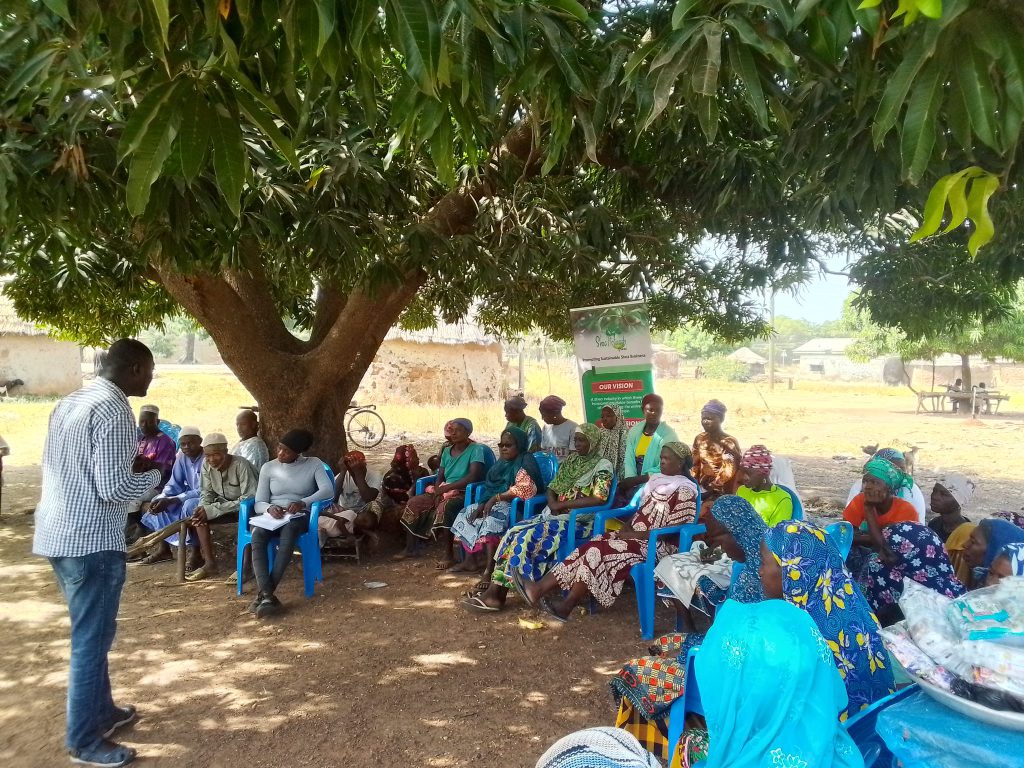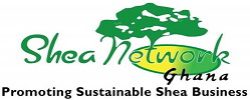
Shea Network Ghana (SNG), in collaboration with its partners, has undertaken a monitoring exercise to assess the impact of Gender Model Families (GMF) and Legal Literacy Volunteers (LLVs) in communities where the Women’s Economic Advancement for Collective Transformation (WEACT) Project is being implemented.
The WEACT Project, a five-year initiative funded by Global Affairs Canada and supervised by OXFAM in Ghana, aims to promote gender equality, enhance women’s economic empowerment, and address structural barriers that limit women’s participation in economic and social decision-making processes.
The two Concepts: Gender Model Family (GMF) and Legal Literacy Volunteers (LLVs), are part of the four main pillers under the Women’s Economic Advancement for Collective Transformation (WEACT) Project, aimed at improving women’s knowledge about Ghana’s laws and to redistribute unpaid care works at the domestic level to ease the burden of women to enable them engage in producticve business ventures.
Known under the WEACT Project as ‘Local Coordination’, the monitoring exercise evaluated the contributions of GMFs and LLVs in fostering social cohesion, addressing gender inequalities, and promoting human rights in the targeted communities.
Voices from the Community
During the visit, many beneficiaries shared how their lives have transformed through the initiatives. Abdul-Majid Khadija, a member of a Gender Model Family in Salankpang in the Mion District of the Northern Region,, expressed her gratitude for the program:
“Before this project, my husband made all the decisions at home, and I felt invisible. But now, we make decisions together, and I feel respected. Our family is happier, and I even manage part of our farm income.”
Similarly, Damata Karim, a woman supported by an LLV in Kpulgine,, spoke about her newfound confidence in asserting her rights:
“I didn’t know I had any rights when it came to land. After the training by the LLV, I was able to claim a portion of my father’s land for farming. Today, I grow crops that feed my family and generate income.” she noted.
For some, the impact went beyond economic empowerment. Hudu Iddrisu, a male participant in the GMF initiative, shared how the project improved his family’s dynamics:
“Initially, I thought sharing household responsibilities with my wife was against tradition. But I have realized that it brings peace and balance to our home. My wife is now able to focus on her small business, and our family benefits more.” he noted
Addressing Challenges and Charting the Way Forward
While the monitoring exercise highlighted positive outcomes, some challenges persist, such as entrenched cultural norms and limited resources for LLVs and GMFs. The monitoring team recommended additional training, resource allocation, and sustained community engagement to overcome these hurdles.
A representative from Shea Network Ghana commended the beneficiaries for their commitment to change and emphasized the importance of collective action. “The impact of the Gender Model Families and Legal Literacy Volunteers is evident in these success stories. Together, we can address the remaining barriers and ensure sustainable progress,”
Traditional and religious leaders in the communities also expressed their support for the project, acknowledging its role in promoting harmony and empowering women.
The ‘Local Coordination’, serves as a critical step in ensuring the sustainability of the WEACT Project’s outcomes, fostering collaboration among stakeholders, and advancing women’s rights and economic empowerment in Shea-Producing Communities.
Written by bAdam Abdul-Fatawu Wunizoya, Communications and Member Services Office-SNG
